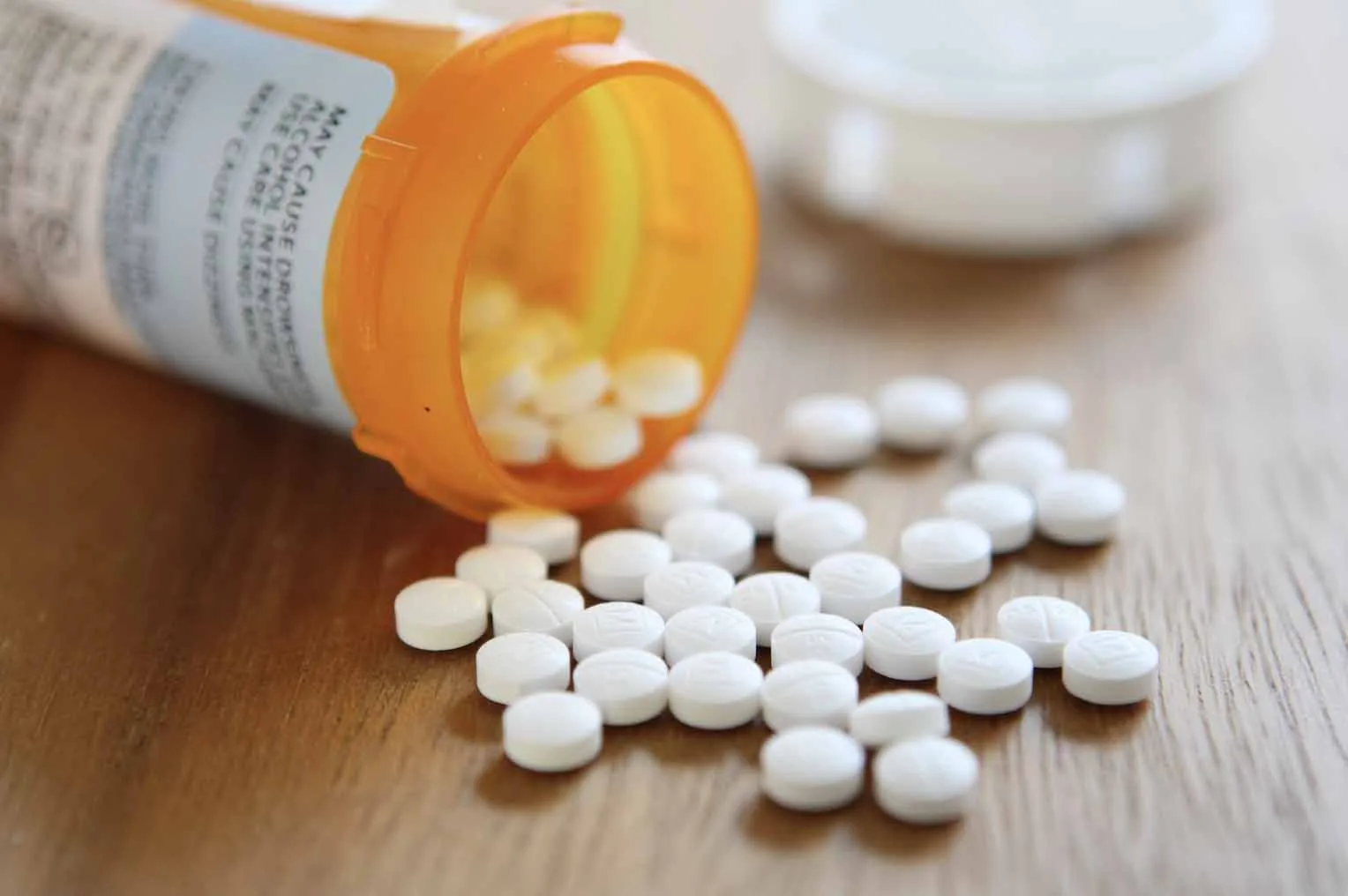Dual diagnosis treatment typically requires 60-90 days for optimal outcomes, as both mental health and addiction conditions need adequate time to stabilize and integrate. Some patients with complex presentations may benefit from extended treatment of 90+ days. Treatment length is individualized based on the severity of both conditions and individual progress.
Dual diagnosis, also known as co-occurring disorders, affects over 9.5 million adults in the United States annually. At Beachway Therapy Center in West Palm Beach, Florida, we specialize in the complex, integrated treatment necessary to address both mental health and substance use disorders simultaneously. Research shows that individuals with co-occurring disorders have significantly better outcomes when both conditions are treated together rather than separately, with integrated treatment improving recovery success rates by up to 60%.
Leading Dual Diagnosis Expertise: Our comprehensive dual diagnosis treatment center combines psychiatric care, addiction medicine, and evidence-based therapies to provide the specialized care that co-occurring disorders require. Unlike programs that treat addiction and mental health separately, our integrated approach ensures both conditions are addressed simultaneously for more effective, lasting recovery outcomes.

Mental Health and Addiction Care Through Integrated Dual Diagnosis Treatment
Dual diagnoses occur when a person battles a mental health and substance use disorder simultaneously. For example, an individual struggling with alcohol abuse may also be dealing with depression, anxiety, PTSD, or bipolar disorder. Dual diagnosis treatment centers in Florida specialize in the complex, integrated treatment necessary to address both sides of a co-occurring disorder diagnosis.
The Critical Need for Integration: According to the National Institute on Drug Abuse, around 9.5 million individuals dealing with a substance abuse disorder are also struggling with a mental health disorder. These dual diagnoses can have a critical impact on the lives of the individual and their loved ones. If both disorders aren’t addressed simultaneously, one can cause the other to worsen and lead to a cycle of treatment failure and relapse.
Beachway’s unique, integrated dual diagnosis treatment approach combines psychiatric care for mental health issues with comprehensive substance abuse treatment, including medically supervised detox when necessary. Every individual receives a personalized treatment plan tailored to their exact dual diagnosis presentation and individual needs, ensuring both conditions are treated with equal expertise and attention.

Why Integrated Dual Diagnosis Treatment Works Better
Treating addiction and mental health conditions separately creates significant barriers to recovery and leads to poor outcomes for patients with co-occurring disorders.
Problems with Separate Treatment Approaches
Separate treatment leads to:
- Higher relapse rates (up to 60% higher than integrated treatment)
- Incomplete recovery with ongoing, untreated symptoms
- Medication conflicts and treatment interference between providers
- Poor long-term outcomes and diminished quality of life
- Increased treatment costs and longer recovery timelines
- Higher risk of treatment dropout and failure
Benefits of Beachway’s Integrated Approach
Our integrated dual diagnosis treatment delivers:
- 40% better treatment completion rates compared to separate treatment
- Reduced relapse risk by up to 50% through comprehensive care
- Improved medication management and therapy effectiveness
- Better long-term recovery and mental health stability
- Coordinated care team communication and treatment planning
- More efficient treatment timeline and better resource utilization
Evidence-Based Integration: Research consistently demonstrates that integrated treatment for co-occurring disorders produces superior outcomes. Our dual diagnosis treatment center is designed around this evidence, ensuring every aspect of care addresses both addiction and mental health simultaneously.
Understanding the Complexities of Dual Diagnosis Treatment
Dual diagnosis situations that include mental health and substance use disorders present complexities that must be accommodated during treatment. An integrated, personalized approach is necessary for the following clinical reasons:
Clinical Complexities Include:
- Substance abuse and mental health issues can have varying effects on each other that are different for every person
- Some treatments for a single diagnosis may negatively impact another diagnosis if not carefully coordinated
- As a person overcomes one symptom or issue, another may become more difficult to deal with if an appropriate integrated approach to treatment isn’t used
- Medication interactions between psychiatric drugs and addiction treatments require specialized expertise
- Withdrawal symptoms can worsen mental health conditions, and mental health episodes can trigger relapse
Personalized Integration: Our clinical team understands that no two dual diagnosis presentations are identical. We develop individualized treatment plans that address the specific ways your mental health and addiction interact, ensuring treatment approaches complement rather than conflict with each other.
Beachway’s Comprehensive Dual Diagnosis Treatment Process
Our structured, evidence-based approach ensures both addiction and mental health conditions receive expert attention throughout every phase of treatment.
Phase 1: Comprehensive Assessment and Stabilization (Days 1-7)
Dual Diagnosis Evaluation:
- Comprehensive psychiatric evaluation by board-certified psychiatrists
- Addiction assessment including substance use history and patterns
- Medical detox with integrated psychiatric monitoring when needed
- Medication assessment and safe adjustment for both conditions
- Risk assessment for suicide, self-harm, and overdose
- Initial treatment planning addressing both conditions simultaneously
Medical Stabilization: Our medical team specializes in managing the complex medical needs of dual diagnosis patients, including safe detox procedures that account for psychiatric medications and mental health stability.
Phase 2: Integrated Treatment and Skill Building (Weeks 2-4)
Simultaneous Treatment Approach:
- Daily individual therapy addressing connections between mental health and addiction
- Specialized group therapy with other dual diagnosis patients
- Psychiatric care and medication management by addiction-trained psychiatrists
- Family therapy and education about co-occurring disorders
- Evidence-based therapies adapted for dual diagnosis presentations
- Crisis intervention training for both mental health episodes and addiction triggers
Skill Development Focus: Patients learn practical skills for managing both conditions in daily life, including trigger identification, coping strategies, medication compliance, and crisis management techniques.
Phase 3: Integration and Transition Planning (Weeks 4-6+)
Real-World Application:
- Practice applying dual diagnosis coping skills in structured environments
- Graduated independence with ongoing dual diagnosis support
- Comprehensive relapse prevention planning for both conditions
- Aftercare coordination with dual diagnosis-trained providers
- Connection to ongoing psychiatric care and addiction support services
- Family preparation for supporting long-term dual diagnosis recovery
Extended Care When Needed: Some dual diagnosis patients benefit from extended treatment (60-90+ days) to ensure both conditions are fully stabilized before transition to outpatient care.
Evidence-Based Therapies Adapted for Dual Diagnosis
Our therapeutic approaches are specifically adapted to address the unique needs of patients with co-occurring mental health and addiction disorders.
Cognitive Behavioral Therapy (CBT) for Dual Diagnosis
Cognitive behavioral therapy adapted for dual diagnosis addresses the interconnected thought patterns that trigger both substance use and mental health symptoms.
CBT for Co-Occurring Disorders:
- Identifies connections between mood changes and substance use triggers
- Teaches coping skills for managing both conditions simultaneously
- Addresses cognitive distortions related to both mental health and addiction
- Develops relapse prevention skills for both conditions
- Builds healthy thought patterns that support both sobriety and mental wellness
Dialectical Behavior Therapy (DBT) for Co-Occurring Disorders
Dialectical behavior therapy is particularly effective for dual diagnosis patients, providing essential emotional regulation skills.
DBT Skills for Dual Diagnosis:
- Distress tolerance for both mental health crises and addiction cravings
- Emotion regulation techniques for managing mood disorders and substance urges
- Interpersonal effectiveness skills often impaired by both conditions
- Mindfulness practices that support both mental health and addiction recovery
- Crisis survival skills for managing dual diagnosis emergencies
EMDR for Trauma and Addiction
EMDR therapy addresses the traumatic experiences that often underlie both mental health conditions and addiction.
Trauma-Informed Dual Diagnosis Care:
- Processes traumatic memories that drive both conditions
- Reduces trauma triggers that lead to substance use
- Heals underlying trauma fueling both addiction and mental health symptoms
- Integrates trauma recovery with addiction treatment goals
- Addresses complex trauma presentations common in dual diagnosis patients
Specialized Group Therapy for Dual Diagnosis
Dual Diagnosis Group Benefits:
- Peer support from others managing both conditions
- Shared experiences and coping strategies
- Reduced isolation and stigma around dual diagnosis
- Accountability for both mental health and addiction recovery
- Practice communication skills affected by both conditions
Specialized Medication Management for Dual Diagnosis
Managing medications for co-occurring disorders requires specialized expertise to ensure safety, effectiveness, and recovery support.
Psychiatric Medications in Addiction Recovery
Our addiction-trained psychiatrists specialize in safely managing psychiatric medications during recovery from substance use disorders.
Safe Medication Management:
- Non-addictive antidepressants and anti-anxiety medications when appropriate
- Medication-assisted treatment (MAT) for addiction integrated with psychiatric care
- Careful monitoring for drug interactions and addiction potential
- Gradual medication adjustments as mental health and addiction symptoms improve
- Education about medication compliance and its role in dual diagnosis recovery
Our Integrated Medical Team Approach
Collaborative Care Model:
- Board-certified psychiatrists specializing in addiction medicine
- Regular medication reviews and adjustments based on both conditions
- Close collaboration between addiction and mental health specialists
- 24/7 medical monitoring during stabilization phases
- Coordination with external providers for continuing care
Medication Safety Protocols: We maintain strict protocols for managing psychiatric medications in patients with substance use disorders, ensuring therapeutic benefits while minimizing addiction risk.
Frequently Asked Questions About Dual Diagnosis Treatment
How long does dual diagnosis treatment take?
Will my insurance cover dual diagnosis treatment?
Most insurance plans cover dual diagnosis treatment when it's medically necessary. Many plans recognize that integrated treatment is more cost-effective than separate treatment for co-occurring disorders. Our admissions team verifies coverage, helps with prior authorization, and works with insurance companies to ensure appropriate coverage for dual diagnosis care.
Can I take psychiatric medications during addiction treatment?
Yes, our addiction-trained psychiatrists specialize in safely managing psychiatric medications during recovery. We use non-addictive alternatives when possible and carefully monitor for interactions and abuse potential. Medication compliance is often essential for dual diagnosis recovery success.
What makes dual diagnosis treatment different from regular rehab?
Dual diagnosis treatment involves specialized staff trained in both addiction and mental health, integrated therapy approaches that address both conditions simultaneously, psychiatric care throughout treatment, and careful medication management. Regular addiction programs may not have the expertise to safely and effectively treat co-occurring mental health conditions.
What happens if I relapse during dual diagnosis treatment?
Relapse can involve either mental health symptoms or substance use (or both). Our program includes crisis intervention protocols for both types of episodes, and we view setbacks as learning opportunities rather than failures. Treatment plans are adjusted based on any relapses to prevent future occurrences.
Do you treat specific combinations like depression and alcoholism?
Yes, we treat all common dual diagnosis combinations including depression and substance abuse, anxiety and addiction, PTSD and substance use disorders, bipolar disorder and addiction, and many others. Our team has expertise in managing the most complex co-occurring disorder presentations.
How involved will my family be in dual diagnosis treatment?
Family involvement is crucial for dual diagnosis recovery success. We offer family therapy, education about both conditions, communication training, and crisis planning. The level of family involvement is tailored to individual needs and family circumstances.
What support is available after dual diagnosis treatment ends?
Our comprehensive aftercare includes ongoing individual and group therapy, psychiatric care coordination, alumni support groups, crisis intervention services, and connection to community resources. We help establish long-term support systems for managing both conditions.







